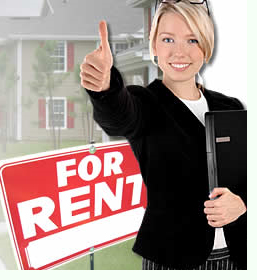Tips For Buying Investment Property
 Taking the plunge into rental property investment? Here are some tips to consider when searching for your first property.
Taking the plunge into rental property investment? Here are some tips to consider when searching for your first property.
- Know how long you’ll own it. If you’re in for five years, you don’t want to invest a ton of cash into big-ticket items, like a new HVAC system, roof or major structural repairs. On the other hand, if you plan to own the property for 20 years, you’ll most likely need to make some major improvements. But that’s okay, since you’ll be holding a longer-term investment and will have a chance to recoup the costs.
- Know the type of investment that fits you best. Is it apartment buildings or single-family homes? Do you want to be a long-term landlord, or buy and resell quickly?
- Location is crucial. Just like when you open a business, you want the best location possible. Well, your investment property is a business, so the same thinking applies. A large pool of potential renters, such as a college town or higher-population area, is the first indicator of a great location. Next, look for nearby public transportation, recreational opportunities, shopping areas and a low crime rate.
- Leave emotion out of the equation. Most investors don’t fall in love with rental properties. The only thing that should matter is how the numbers shake out.
- Plan, plan, plan. Get your finances in shape long before you’re ready to buy. Meet with your financial advisor, lawyer and insurance agent to carefully scrutinize the assets you can devote to this investment, as well as the protection from risk and liability you’ll need.
- Don’t pay too much. Negotiate for the best price you can get up front. If you overpay for an investment property, you’ll never recoup your money. Again, the numbers are the only thing that matters when buying investment property. If they don’t work on a particular property, walk away.
- Learn your market. How does an investor know when the numbers make sense? It depends on your market. There are formulas you can try, such as paying no more than six to eight times the first year’s rents. Another formula we’ve seen is to pay no more than 70% of the price the property would be worth after making all the necessary repairs and upgrades after purchasing it.
- Make sure rents will cover your out-of-pocket expenses. Mortgage, insurance, taxes, maintenance repairs and a percentage to cover vacancies must be paid out of the rental income so that the property at least breaks even.
Disclaimer:
This site is intended to provide useful information. It is not intended to provide professional financial or legal advice and cannot substitute for professional advice. Seek independent professional advice from a competent licensed professional before acting upon any information contained herein.

Add A Comment
You must be logged in to post a comment.